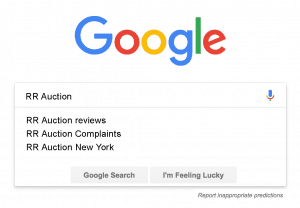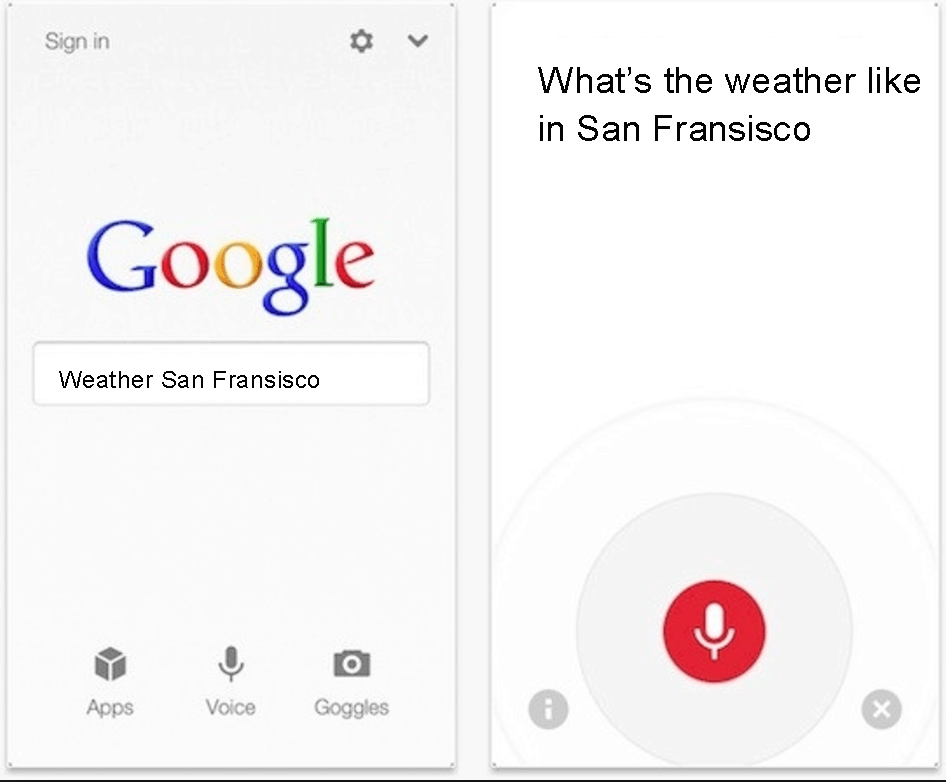Perform Search Phrases Research to Detect Online Reputation Problems
Each search query delivers its own results. Want to discover what potential customers see when researching your company? Perform search phrases research to detect online reputation problems. Add keywords such as “reviews,” “problems,” “complaints,” or a geographical search like “New York” or “Santa Monica, Los Angeles” behind your company name. This can show you where your online issues are by presenting you the search results that are likely destroying your brand’s reputation.

Voice Queries Are unlike Text Queries
Voice search is substituting text search in particular circumstances, mostly because of the rising usage of mobile devices over a desktop. According to Google, in 2016, 20 percent of mobile queries were voice searches. So when you perform search phrases research to detect online reputation problems, make think of both voice as text queries.

A few of the most essential aspects of voice search since they relate to reputation management are:
- Voice Search is conversational
A voice search reads in a natural way. For example, when someone would type in ‘Company Name Reviews,’ he would say in voice search ‘what are the reviews for Company Name X.’ Noticed the difference? When analyzing your customer’s potential voice queries, speak out loud.
- Mobile is mostly used in the car, or at home
On the work floor, people generally choose to apply typed queries, so their boss doesn’t notice, to keep things private or to avoid looking like a crazy person talking into thin air.
- Voice search is more common in B2C than B2B.
Despite the fact that business-to-business searches are generally typed, consumer searches are often carried out verbally. If your company is focused on consumers directly, voice search is even more important.
There are several other forms of search queries. Google refers to them as “go,” “do,” and “know.” Alternatively recognized as navigational, transactional, and informational.
Navigational Terms
A navigational search means that people are attempting to discover your site through a search engine rather than directly typing or saying your website URL. A navigational search query could be your brand name or specific words like ‘blog’ or ‘contact’ to get to a particular page on your website. Navigational searches do not happen as frequently as you might like but it is useful to monitor which search results are generated as a result of these searches. Are they positive, negative, or lacking? Are the search results useful or confusing? Are they navigating the customer straight to that part of the site they’re searching for?
Transactional Search Phrases
When purchasing something online, sign up or download something like a PDF file or white paper, it is called a transactional search phrase.
Informational Search Phrases
It’s an informational search phrase when somebody is searching for details like your company address, the telephone number of the Manager, or precise questions on your products.
Specific Search Phrases
In most cases, a customer will work with specific search terms instead of your company name to find your website. Let’s use Apple, for example. Some people may type Apple into the search engine. But far more people carry out related searches like Apple laptops, Apple phones, or Steve Jobs. Also referred to as “long-tail” search phrases.
The importance of Local Search Phrases
 It’s different for physical offices, agencies, stores or restaurants. When you perform search phrases research to detect online reputation problems, keep in mind that most local people who are thinking about going to Thai Lely’s Restaurant in Los Angeles may search “Thai Lely’s menu,” “Thai Lely’s address,” or “Thai Lely’s reviews.” All these phrases reveal the searcher’s intention. When someone searches for a restaurant’s address, it is likely that they already decided to eat there. But when searching for the menu, they might not be sure yet.
It’s different for physical offices, agencies, stores or restaurants. When you perform search phrases research to detect online reputation problems, keep in mind that most local people who are thinking about going to Thai Lely’s Restaurant in Los Angeles may search “Thai Lely’s menu,” “Thai Lely’s address,” or “Thai Lely’s reviews.” All these phrases reveal the searcher’s intention. When someone searches for a restaurant’s address, it is likely that they already decided to eat there. But when searching for the menu, they might not be sure yet.
Queries Tell Stories About Your Brand and the Prospective Customer
The type of query a person enters often tells you where your prospect is in the sales funnel. Their ranking in the funnel uncovers their intention, their wants, and needs. Their purpose offers hints as to what your prospective customers might be looking for. When you have enough knowledge about what your prospects are searching for, your online reputation program can place the right content in their path and convert more searchers into buyers. By strengthening not just your website’s search results, but also other websites that influence your brand’s online perception. When you effectively copy search behavior you can discover where your strengths and opportunities lie to create the best possible online display for your brand.
 Page1.me
Page1.me